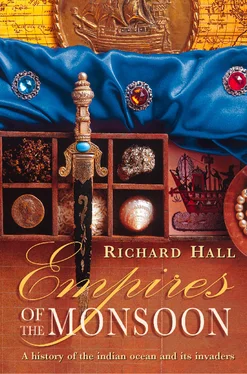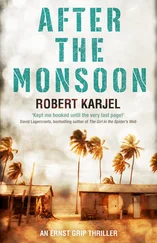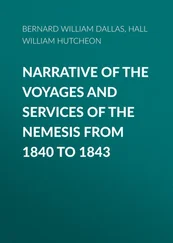A History of the Indian Oceanand its Invaders

RICHARD HALL
William Collins
An Imprint of HarperCollins Publishers 1 London Bridge Street London SE1 9GF
www.harpercollins.co.uk
First published in Great Britain by HarperCollins Publishers 1996
Copyright © Richard Hall 1996
Part title decoration from ‘The Fleet of Vasco da Gama’ illustrated in The Portuguese in India , Vol. 1, by Frederick Danvers
Richard Hall asserts the moral right to be identified as the author of this work
A catalogue record for this book is available from the British Library
All rights reserved under International and Pan-American Copyright Conventions. By payment of the required fees, you have been granted the nonexclusive, nontransferable right to access and read the text of this e-book on-screen. No part of this text may be reproduced, transmitted, downloaded, decompiled, reverse-engineered, or stored in or introduced into any information storage and retrieval system, in any form or by any means, whether electronic or mechanical, now known or hereinafter invented, without the express written permission of HarperCollins e-books.
HarperCollins Publishers has made every reasonable effort to ensure that any picture content and written content in this ebook has been included or removed in accordance with the contractual and technological constraints in operation at the time of publication.
Source ISBN: 9780006380832
Ebook Edition © APRIL 2016 ISBN: 9780007547043
Version: 2018–10–09
Dedicated to the memory of Harry A. Logan Jr of Warren, Pennsylvania
Cover
Title Page
Copyright
Dedication
Maps
Foreword
A Note on Spellings
PART ONE: A World Apart
1. Wonders of India, Treasures of China
2. Lure of the African Shore
3. The Mystery of the Waqwaqs
4. Islam Rules in the Land of Zanj
5. On the Silk Route to Cathay
6. A Princess for King Arghon
7. The Wandering Sheikh Goes South
8. Adventures in India and China
9. Armadas of the Three-Jewel Eunuch
10. Ma Huan and the House of God
11. The King of the African Castle
PART TWO: The Cannons of Christendom
12. Prince Henry’s Far Horizons
13. Commanding the Guinea Coast
14. The Shape of the Indies
15. The Lust for Pepper, the Hunt for Prester John
16. The Spy Who Never Came Home
17. Kings and Gods in the City of Victory
18. Da Gama Enters the Tropical Ocean
19. A First Sight of India
20. The Fateful Pride of Ibn Majid
21. Sounds of Europe’s Rage
22. The Vengeance of da Gama
23. The Viceroy in East Africa
24. Defeating the Ottoman Turks at Diu
25. The Great Afonso de Albuquerque
26. Ventures into the African Interior
27. From Massawa to the Mountains
28. At War with the Left-handed Invader
29. Taking Bible and Sword to Monomotapa
30. Turkish Adventurers, Hungry Cannibals
31. The Renegade Sultan
32. The Lost Pride of Lusitania
33. Calvinists, Colonists and Pirates
34. Ethiopia and the Hopes of Rome
35. The Great Siege of Fort Jesus
36. Western Aims, Eastern Influences
PART THREE: An Enforced Tutelage
37. Settlers on India’s Southern Approaches
38. The Seas beyond Napoleon’s Reach
39. The French Redoubt and the Isle of Slaves
40. ‘Literally a Blank in Geography’
41. Two Ways with the Spoils of War
42. The Sultan and the King’s Navy
43. Stepping Back from East Africa
44. The Americans Discover Zanzibar
45. Looking Westwards from the Raj
46. Portents of Change in the ‘English Lake’
47. In the Footsteps of a Missionary
48. Warriors, Hunters and Traders
49. A Proclamation at the Custom House
50. Meeting the Lords of the Interior
51. The Failure of a Philanthropic Scotsman
52. Imperialism Abhors a Vacuum
53. Bismarck and the Gesellschaft
54. Africa Hears the Maxims of Faith and War
55. From Sultan’s Island to Settlers’ Highlands
Epilogue
Index
Index of Personal Names
Acknowledgements
Further Reading
Commentary
About the Author
Also by the Author
About the Publisher
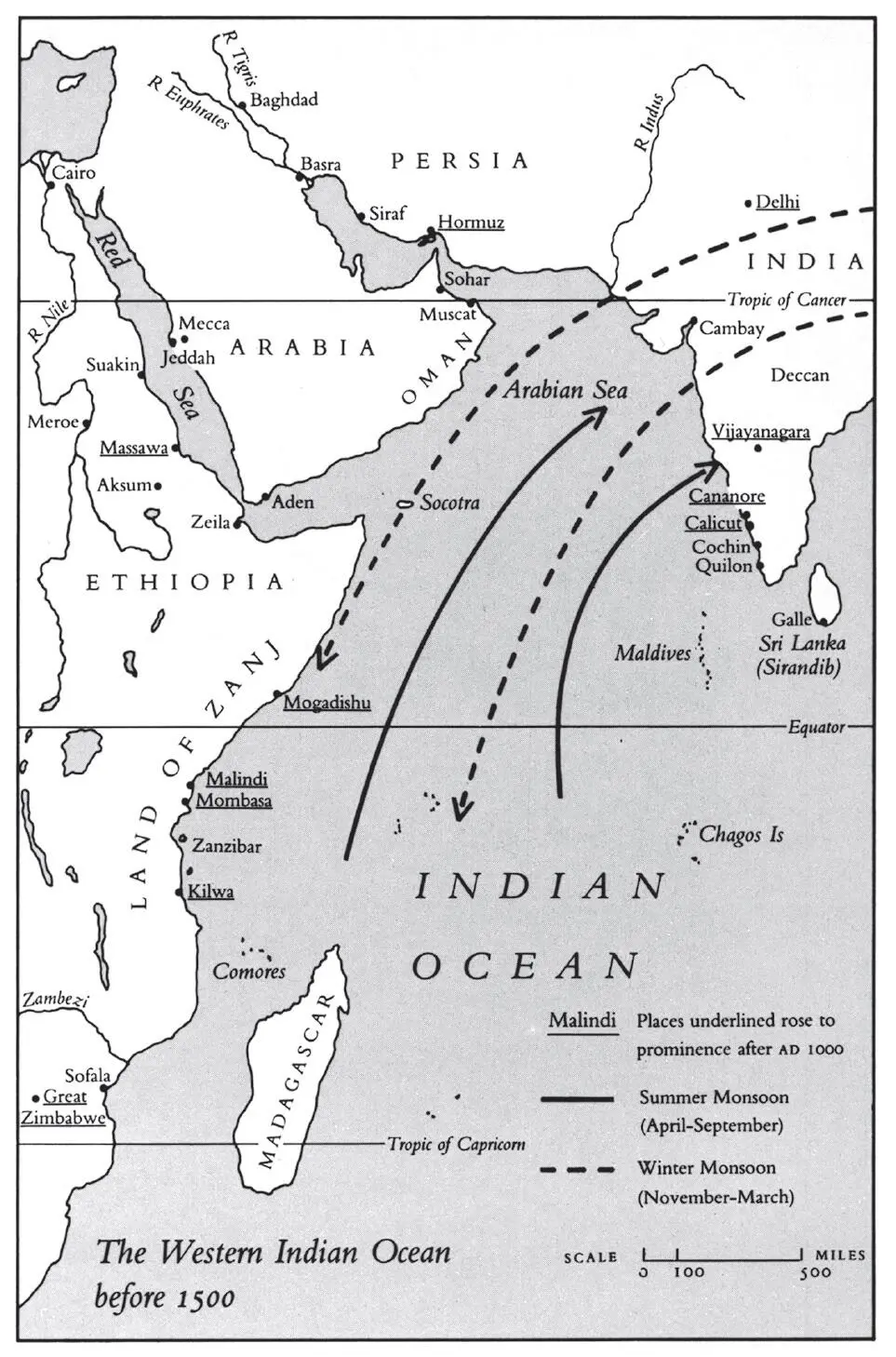
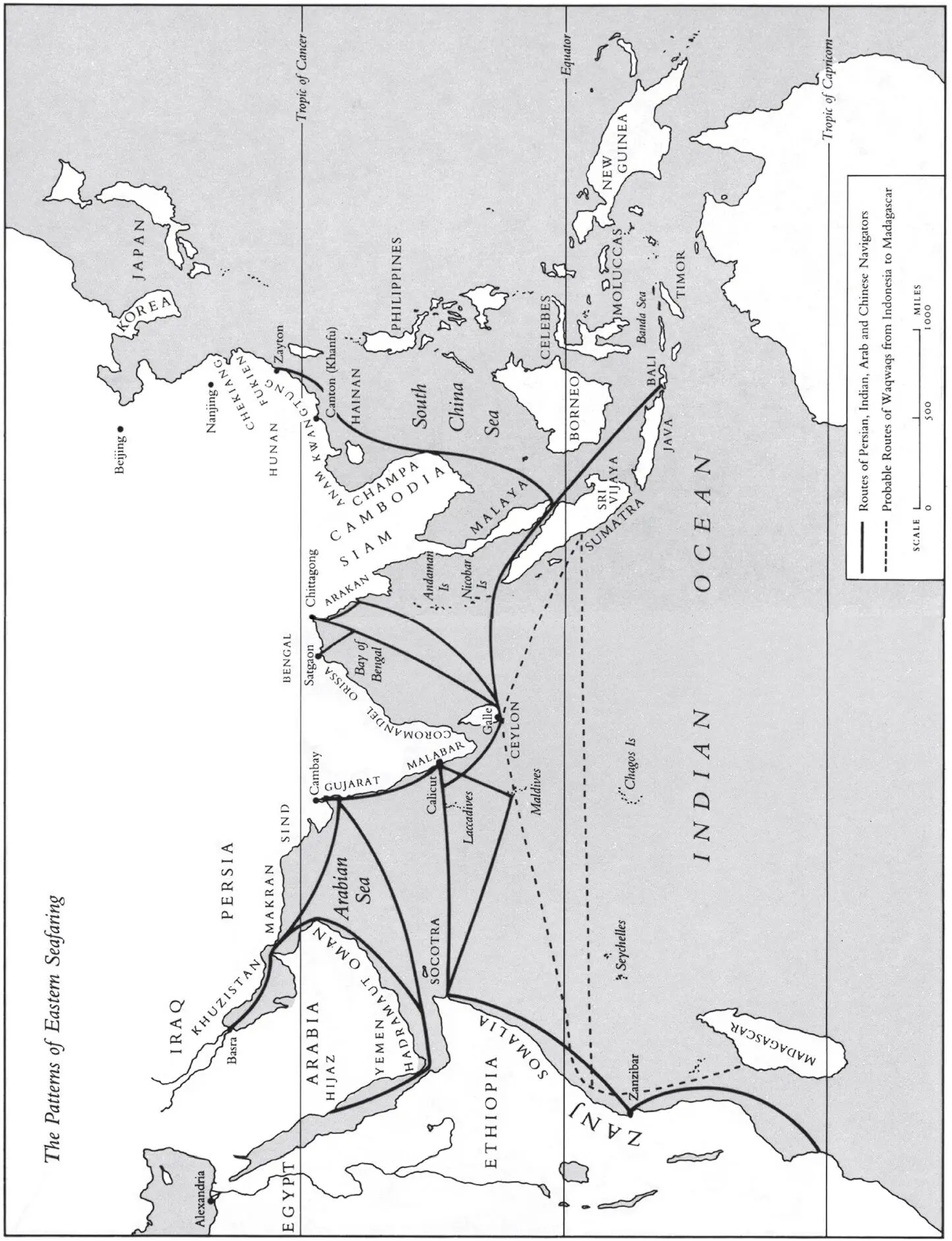
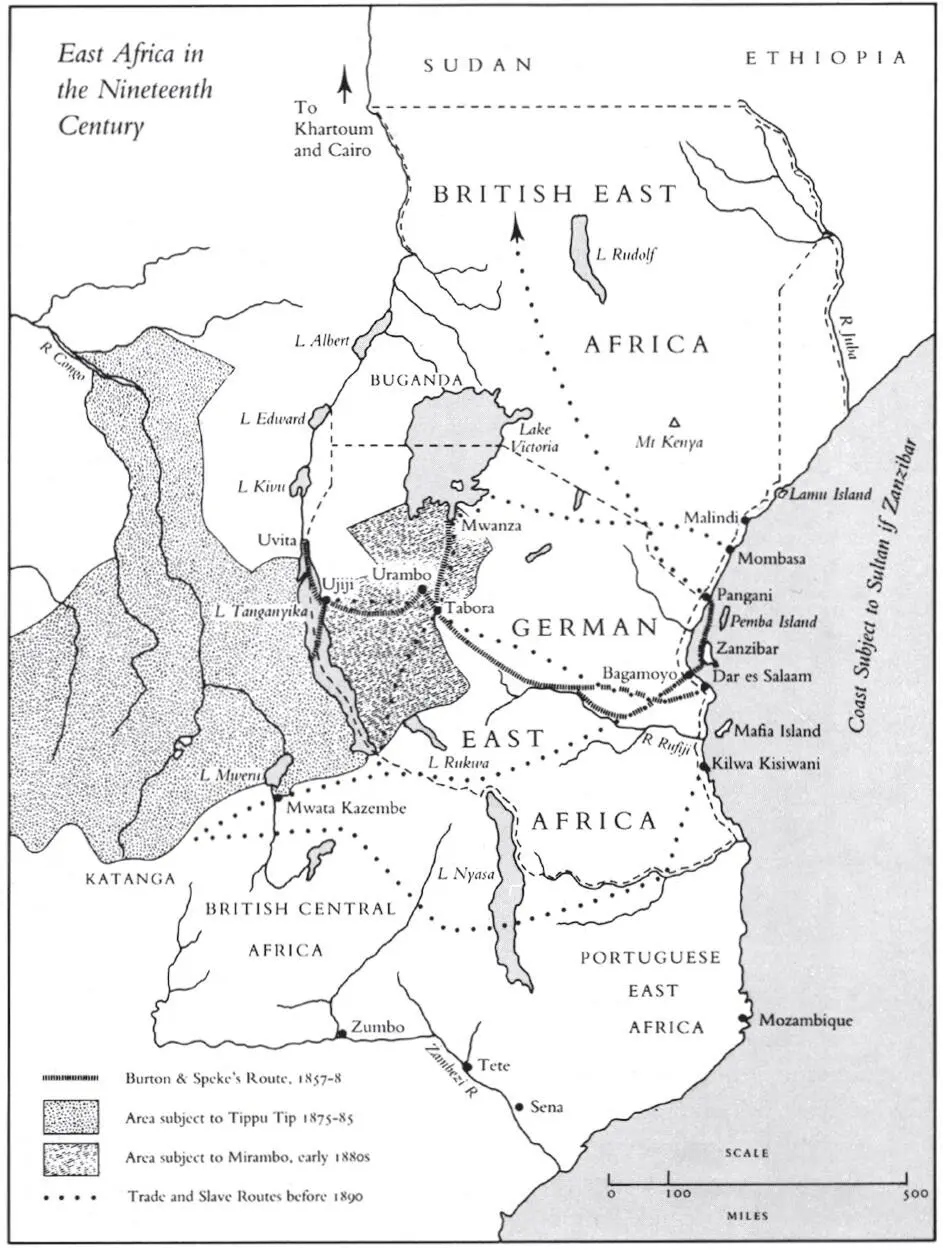
Maps by Leslie Robinson
Turn a map of the world upside down and the Indian Ocean can be seen as a vast, irregularly-shaped bowl, bounded by the shorelines of Africa and Asia, the islands of Indonesia, and the coast of Western Australia. 1Unlike the Atlantic and Pacific, merging at their extremes into the polar seas, this is an entirely tropical ocean; to mention it calls up a vision of palm-fringed islands and lagoons where rainbow-hued fish dart amid the coral. That is the tourist-brochure image, but behind it lies the Indian Ocean of history – a centre of human progress, a great arena in which many races have mingled, fought and traded for thousands of years.
The earliest civilizations, in Egypt and the valley of the Tigris and Euphrates, had direct access to the Indian Ocean by way of the Red Sea and the Persian Gulf. At the hub, stretching towards the equator, lay the Indian sub-continent, itself the site of ancient cultures in the Indus valley. Since long before the time of Alexander the Great, travellers had brought back tales of the rich and voluptuous East. The emperor Trajan, arriving triumphantly at the Persian Gulf in A.D. 116, and watching mariners set sail for India, had mourned that he was too old to make the voyage and gaze upon its wonders. 2
For almost a thousand years after the fall of the Roman empire the western side of the Indian Ocean, the focus of this book, was as much an entity as the Mediterranean, surpassing it in wealth and power. The arts and scholarship flourished there, in cities to which merchants came from all corners of the known world. There was also much turmoil, as conquering armies spawned in the remote parts of Asia swept down to overthrow old empires and impose new dynasties.
The lives of ordinary people, however, were always ruled more by nature than by great events, by the perpetual monsoons rather than by ephemeral monarchies. The word ‘monsoon’ comes from the Arabic mawsim , ‘season’, and ever since sailors had dared to venture on voyages across the open seas these seasonal winds had borne their ships between India and its distant neighbours. For six months they blow one way, then in the reverse direction during the other half of the year. The summer monsoon, coming from East Africa and the southern seas, is pulled eastwards by the rotation of the earth after passing the equator, so that it sweeps across India and up through the Bay of Bengal. Winds are fiercest between June and August.
The sea-captains of old might not understand why the monsoons happened (how colder air was being sucked northwards over the ocean in summer towards the hot lands of Asia, then southwards from the Himalayas and the Indian plains in winter); for them it was sufficient that the winds came on time, year in and year out, to fill their sails. For the farmers of India it was likewise enough to know that the summer monsoon would bring them rain. 3However, on sea and land, the monsoon was always feared in its times of fury, when no vessel dared set out, when floods swept away villages, and cyclones left devastation.
Читать дальше
